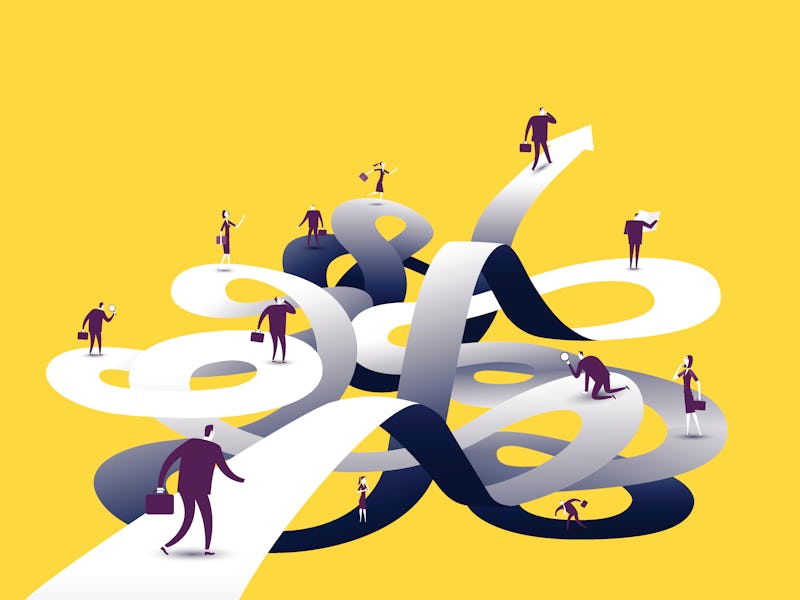A psychologist explains why one unexpected upside of worry is perfect for 2020
Why a feeling with a bad reputation is actually “useful in small amounts."

The human brain loves to make plans. Research shows that when, for example, you are walking down the street, your noggin is continuously translating visual targets into potential actions. You could walk over a crack; you could pause for traffic. Your brain is ready if you decide to shift to Plan B because it already perceives the world as a series of possibilities.
That’s what’s going on under the hood. However, considering present days, that may seem hard to believe. If you’re like many Americans, making plans can feel increasingly impossible. Because of the coronavirus pandemic, many plans have been put on hold. Because of the coronavirus pandemic and combative politics, post-election plans may feel unattainable. Hurdles can frazzle a plan-making mind.
Personally, I had a problem with plan-making this week. This column is published on Sunday, I write it on Fridays, and I plan for it throughout the week. On Monday — Election Day — I worried about its focus. How could I plan for what people wanted to read when I didn’t know how politics would play out? What if I got it wrong?
Interestingly, research indicates there’s science behind the process that guided my decision: I worried, and then I made a plan to write about worry.
Kate Sweeny is a psychology professor at the University of California, Riverside, and co-authored the 2017 study, “The surprising upsides of worry.” Worry is an aversive emotional experience, Sweeny says. It also can trigger some good, including motivating productive behavior and enhancing the effectiveness of goal-directed action. The key here is that you’re working with the “right amount of worry.”
“Worry never feels good in any dose, but it can be very useful in the right amounts,” Sweeny tells me.
“Worry is an alarm bell that draws our attention to a potential threat — and in doing so, it helps us to focus on how to prevent or prepare for that threat. However, if worries are excessive for the nature of the threat, or if there’s really nothing more we can do to prevent or prepare, then it’s important to find ways to distract ourselves or reduce our worries.”
The link between planning and worrying — Sweeny’s research suggests worry is positively associated with adaptive preparation and planning. She explains that if one’s goal is to directly combat worries about a particular outcome, then the best planning would be related to that outcome. As a specific example, she offers the election: If people who are highly politically engaged find themselves worrying, then they might find some comfort in planning how they’ll help their preferred candidate in the Georgia Senate run-off, or how they’ll engage in activism to support preferred policies regardless of who wins.
Planning, in turn, becomes a strategy for combating worries — and worries might prompt you to start planning. Considering the present challenges, Sweeny comments that while people might anguish over the seemingly impossible task of making plans, the stronger force they might be reacting to is uncertainty.
“One of the hardest feelings about waiting is that we don’t have control, which is an extremely uncomfortable feeling,” she says. “Planning might not give us control over the outcome, but it gives us some control over our reaction to it — which might help us to feel a bit better.”
That said, you’ll still be working with a few odds stacked against you. Research from Stanford University suggests stress — that tricky stepsister of worry — hinders our ability to make well-informed plans because it dampens the parts of the brain related to memory and goal-directed behavior. These authors stress that it robs some people of a neurocognitive privilege. Because they are occupied by something like a health or economic stressor, they are put at a biological disadvantage.
The takeaway? Plans are your friend and can be a pathway to handling worry in a healthy and productive way. But the definition of “plan” is up to you — and if you’re stressed and worried, don’t be mad at yourself for not immediately fixing your situation. A plan can be going on more runs or logging off more often. All you have to do is find a place to start.
This article was originally published on